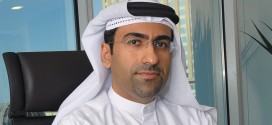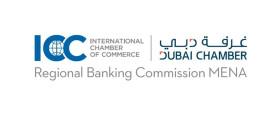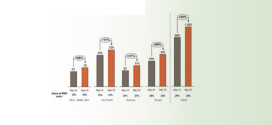MENA can expect a positive 2013, according to the Capital Club Bahrain, said to be the Kingdom’s premier private business club and a member of the ENSHAA group of companies.
At one of its meetings towards the end of last year, some of the Arab world’s most influential business personalities and leaders in their respective fields analysed the future business outlook for the region.
With more than 60 members and guests in attendance, the panel consisted of some of the industry’s top names, including Talal Al Zain, vice-chairman of the club and CEO of PineBridge Investments Middle East, a global multi-asset class investment firm; Khalid Al Zayani, honorary chairman of the Al Zayani Investments Group of Companies; Dr Yahya Al-Yahya, CEO, Gulf International Bank; and moderator Jamal Fakhro, managing partner, KPMG Fakhro.
Of the investment climate, Talal Al Zain said, “The IMF forecasts the GCC economy growing by 3.25 per cent in 2013, which is higher than both Europe and the US at forecasts of 0.2 per cent and 2.1 per cent respectively. There are clear investment opportunities in the region, including the oil and services sector, and demand-driven sectors such as health and education. The case for continued regional economic reform is just as strong, in order to allow the private sector to grow, to diversify from oil, and create jobs.”
Al Zayani, whose organisation is involved in profitable national and international businesses with a diverse portfolio, provided an optimistic business perspective, commenting, “The fundamentals for growth are there but investment and consumer spending is being withheld due to political instability in the region, in which we must include not only other GCC member states, but also Syria, Iraq and, of course, Iran.”
Commenting on the 2013 outlook for the Saudi economy, Dr Al-Yahya, who has been the CEO of Gulf International Bank since 2009, served as executive director at the World Bank and was an advisor to the governor of the Saudi Monetary Agency (Sama), said, “In Saudi Arabia, mortgage finance, housing development, construction (contracting) and consumer lending will all be on the rise. They will be major drivers for growth in the medium term. It is expected that fiscal spending will continue at the same level as the last few years, in line with the adopted counter cyclical economic policy of the Kingdom. Major risks to the Saudi economy would be significant fluctuations in the price of oil.”
Adding to the discussion, moderator Jamal Fakhro remarked, “I am confident of a positive climate ahead of us in the region. With oil prices in the range of $110/120 per barrel, GCC countries will have enough cash to fund their infrastructure projects. The recent ‘GCC Marshal programme’ will help Bahrain to spend $500m to $750m in infrastructure projects every year for the coming 10 years. We expect 2013 to be a positive year with growth, incumbent upon the stability of the region”.
 Cash And Trade Magazine For Cash and Trade professionals in the Middle East
Cash And Trade Magazine For Cash and Trade professionals in the Middle East




